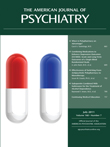The Journal is publishing three multiple-medication trials for three different diagnoses in this issue. One article describes the Combining Medications to Enhance Depression Outcomes study (CO-MED), which tested three comparison arms (one antidepressant alone and two different antidepressant combinations) in 665 individuals with depression to contrast combination-drug with single-drug treatment for depression; the study found no differences, and therefore no support for polypharmacy, between the three groups in outcomes. Another study of 150 individuals with alcohol dependence contrasted one treatment (naltrexone) either alone or in combination with a second drug (gabapentin) and compared both to double placebo; the study showed that the combination of drugs was better than either of the single treatments or placebo during the initial phase of treatment, therefore partially supporting polypharmacy. The third study, evaluating 127 individuals with schizophrenia, compared the effectiveness of switching from polypharmacy to monotherapy in half of the participants; this study showed a significant risk of study failure in the switch (monotherapy) group, despite the presence of fewer side effects, an outcome supportive of polypharmacy. These trials represent well-designed treatment comparisons in different diagnostic groups, testing single or multiple medications. We can have confidence in the outcomes given the rigor of their designs. These trials suggest that the answer to the question of whether polypharmacy is good treatment will be specific to the combination and to the diagnosis. There seems not to be an easy or a universal answer to this treatment question.
Since our mechanistic knowledge about psychiatric diagnoses remains inadequate, we do not have the clarity of logic to know if these illnesses are complex or simple or indeed if their pathophysiological mechanism(s) could have more than one molecular target. Thus, we are left to guess and blindly test first one medication and then combinations of medications to achieve the best outcomes in complex diagnoses. The best of our psychiatric medications often demonstrate complex pharmacologies within a single drug. A classic example is clozapine, whose basic mechanism of action is presumed to be dopamine receptor antagonism; however, the complex pharmacology of the compound itself and its unique clinical action in schizophrenia regularly generate speculations that polypharmacy augments outcome. It is not unreasonable to speculate that combining drugs will enhance outcomes. However, it is incumbent upon us to step forward and test these assumptions so that validated combination treatments are demonstrated to enhance therapeutic outcomes and not only ameliorate side effects.
To say that we need new research to define the pathophysiologies of psychiatric conditions—to move these diseases into the realm of modern medicine—is to emphasize the obvious. It will be a good era when we can talk with high expectations about personalized and preemptive psychiatric approaches, let alone rational treatments for functional brain diseases. In the meantime, although we can reasonably postulate therapeutic benefit from drug combinations, we need to expect and demand demonstration of enhanced therapeutic outcome. As we see here in this issue, sometimes we will find it and sometimes we will not. Both positive and negative outcomes are informative, and the outcomes should be used to guide practice.

